Federico Igne
Computing CQ lower-bounds over OWL 2 through approximation to RSA
Jul 01, 2021
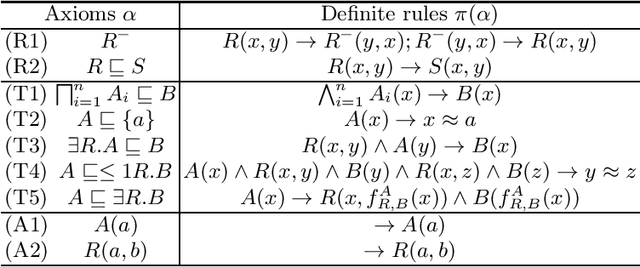
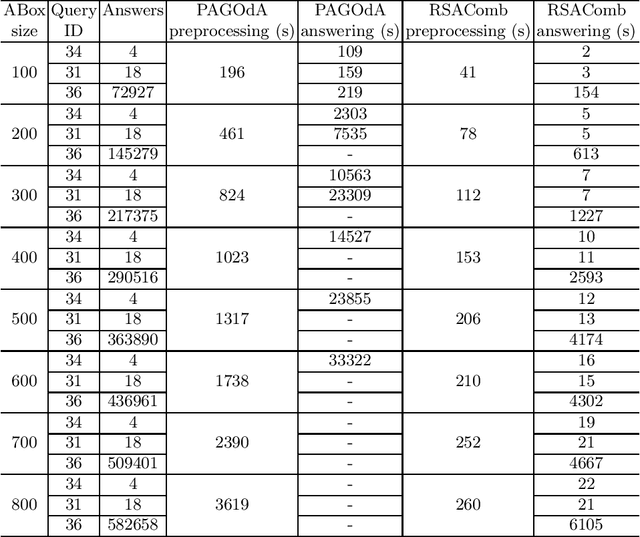
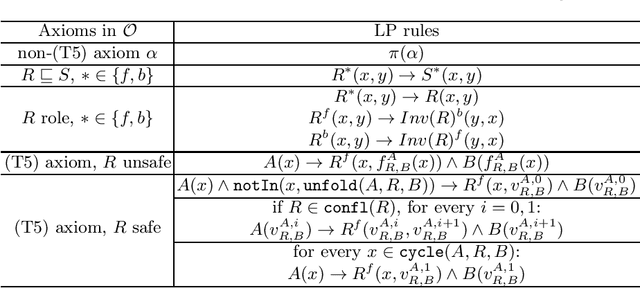
Abstract:Conjunctive query (CQ) answering over knowledge bases is an important reasoning task. However, with expressive ontology languages such as OWL, query answering is computationally very expensive. The PAGOdA system addresses this issue by using a tractable reasoner to compute lower and upper-bound approximations, falling back to a fully-fledged OWL reasoner only when these bounds don't coincide. The effectiveness of this approach critically depends on the quality of the approximations, and in this paper we explore a technique for computing closer approximations via RSA, an ontology language that subsumes all the OWL 2 profiles while still maintaining tractability. We present a novel approximation of OWL 2 ontologies into RSA, and an algorithm to compute a closer (than PAGOdA) lower bound approximation using the RSA combined approach. We have implemented these algorithms in a prototypical CQ answering system, and we present a preliminary evaluation of our system that shows significant performance improvements w.r.t. PAGOdA.
Knowledge Graphs Evolution and Preservation -- A Technical Report from ISWS 2019
Dec 22, 2020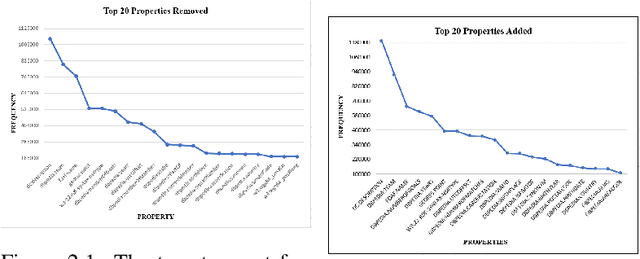
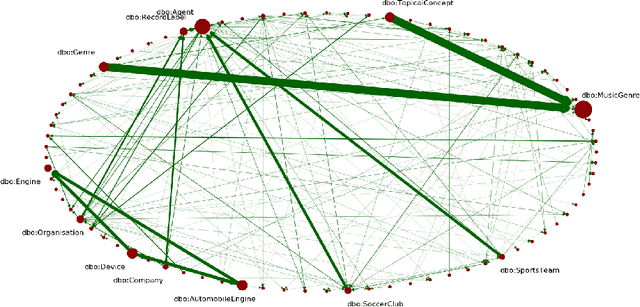
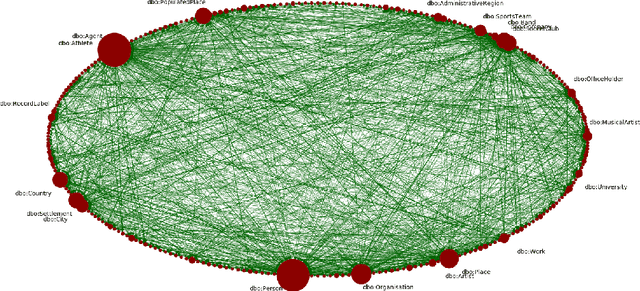
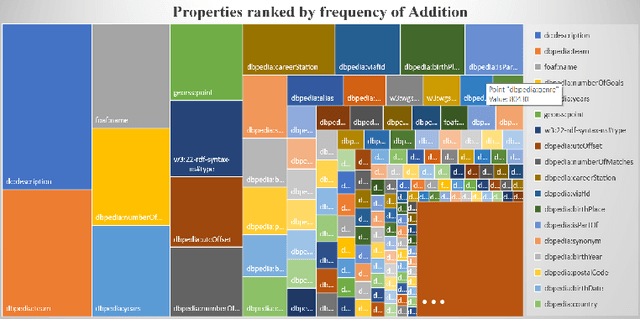
Abstract:One of the grand challenges discussed during the Dagstuhl Seminar "Knowledge Graphs: New Directions for Knowledge Representation on the Semantic Web" and described in its report is that of a: "Public FAIR Knowledge Graph of Everything: We increasingly see the creation of knowledge graphs that capture information about the entirety of a class of entities. [...] This grand challenge extends this further by asking if we can create a knowledge graph of "everything" ranging from common sense concepts to location based entities. This knowledge graph should be "open to the public" in a FAIR manner democratizing this mass amount of knowledge." Although linked open data (LOD) is one knowledge graph, it is the closest realisation (and probably the only one) to a public FAIR Knowledge Graph (KG) of everything. Surely, LOD provides a unique testbed for experimenting and evaluating research hypotheses on open and FAIR KG. One of the most neglected FAIR issues about KGs is their ongoing evolution and long term preservation. We want to investigate this problem, that is to understand what preserving and supporting the evolution of KGs means and how these problems can be addressed. Clearly, the problem can be approached from different perspectives and may require the development of different approaches, including new theories, ontologies, metrics, strategies, procedures, etc. This document reports a collaborative effort performed by 9 teams of students, each guided by a senior researcher as their mentor, attending the International Semantic Web Research School (ISWS 2019). Each team provides a different perspective to the problem of knowledge graph evolution substantiated by a set of research questions as the main subject of their investigation. In addition, they provide their working definition for KG preservation and evolution.
 Add to Chrome
Add to Chrome Add to Firefox
Add to Firefox Add to Edge
Add to Edge